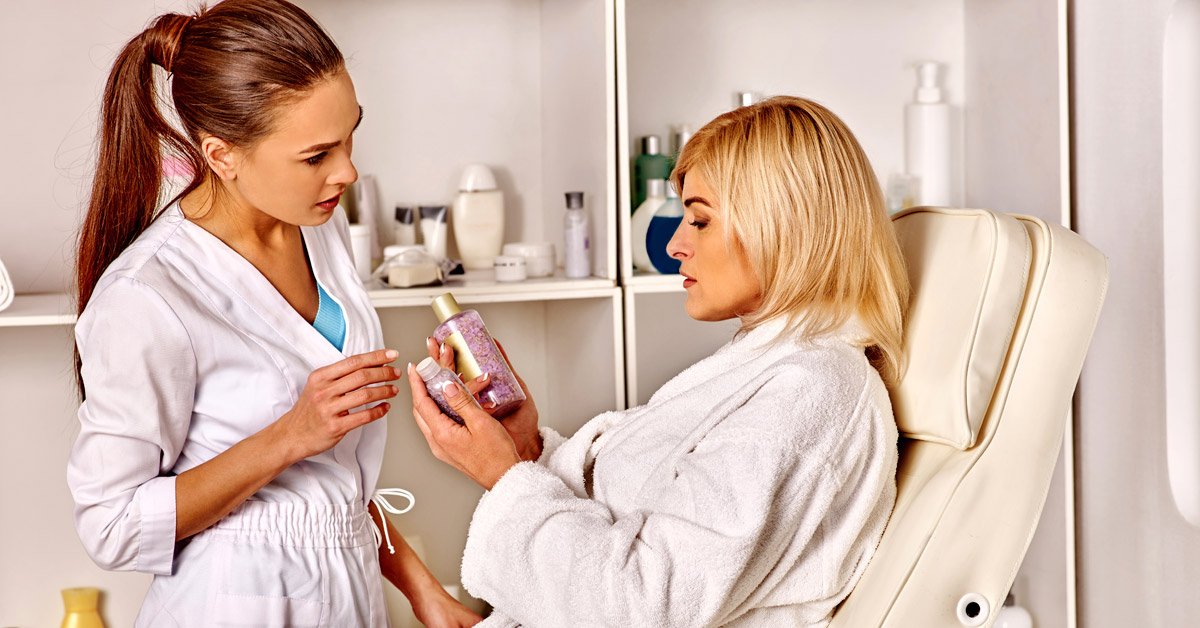Introduction to the Beauty Industry
The Beauty Industry refers to a broad range of businesses that produce and sell products related to personal care, grooming and appearance enhancement. This industry is a massive global market as it encompasses a vast range of products and services, from luxury brands to mass-market products sold in drugstores and supermarkets.
The beauty industry plays a significant role in the global economy. It is also an essential part of people’s daily lives, with individuals of all ages and backgrounds using beauty products and services to enhance their appearance and boost their confidence.
There are many examples of businesses within the beauty industry, such as cosmetic, skincare, haircare, fragrance companies etc. Beauty salons and spa is also a major part of beauty industry.

Let’s understand about the parts of beauty industry and understand how it is no less than a scam:
Cosmetic beauty Industry
Cosmetic companies produce a vast range of products, including foundation, lipstick, eyeshadow, blush, mascara, skincare creams and lotions and personal care items such as deodorants and body washes.
The cosmetic beauty industry is a highly competitive and constantly evolving in market.
Cosmetic companies invest heavily in research and development to create products that meet consumer demand for high-performance, sustainable, and ethically produced cosmetics. In recent years, there has been a growing interest in clean beauty, which refers to cosmetics that are made with natural and non-toxic ingredients. This trend has led to the emergence of new companies that focus on creating clean and sustainable beauty products.
Cosmetic products under the beauty industry can potentially be harmful if they are not formulated or used correctly. Some individuals may be allergic to certain ingredients in cosmetic products, Allergic reactions can cause skin irritation, redness, swelling, and itching. Some cosmetic products can also cause skin irritation or sensitivity, particularly if they contain ingredients that are harsh or abrasive. Overuse or improper use of certain products can also lead to skin irritation.
There are concerns about the environmental impact of cosmetic products, particularly the use of plastic packaging and the disposal of products down the drain.

Haircare beauty Industry
Hair care products include shampoos, conditioners, styling products, hair dyes, hair treatments, and hair accessories. Haircare companies invest heavily in research and development to create products. There is a growing demand for hair care products that are free from harmful chemicals, such as sulfates, parabens, and silicones. As a result, many haircare brands are formulating products that use natural ingredients and are marketed as clean and sustainable.
Many haircare brands also offer personalized product recommendations based on individual hair type and concerns, using online tools and artificial intelligence to make recommendations. The industry also encompasses a range of distribution channels, including online sales, retail stores, and professional hair salons.
Haircare companies can affect the health of the hair in several ways, depending on the specific products and ingredients used. The use of harsh shampoos and conditioners can strip the hair of its natural oils, leading to dryness, brittleness, and breakage.
Styling products, such as hair sprays, gels, and mousses can cause build-up on the hair and scalp leading to clogged hair follicles and irritation. Some products may also contain ingredients that can cause dryness and breakage over time.
The use of hair dyes and bleaches can cause damage to the hair, particularly if they contain harsh chemicals such as ammonia or peroxide. Frequent coloring or bleaching can lead to dryness, breakage, and hair loss.

Beauty Spa and Salons
Beauty spas and salons specifically offer a variety of services aimed at improving the health and appearance of their clients’ hair, skin, and nails. They may also provide additional services such as massage, aromatherapy, and other relaxation treatments.
The beauty industry as a whole is a major contributor to the economy, with billions of dollars in annual revenue and millions of people employed in various roles across the industry.
There are also potential negative effects that can arise from certain practices or products used in these establishments. Some beauty treatments, such as chemical peels, laser hair removal, or waxing, can cause skin irritation, redness, or even burns if not performed correctly. Improper use of equipment or products, as well as lack of proper sanitation protocols, can also lead to skin infections or other skin problems.
Certain beauty treatments, such as tanning beds, can increase the risk of skin cancer, while some hair straightening or relaxing treatments may contain harmful chemicals that can be absorbed through the scalp. Additionally, if proper sanitation protocols are not followed, there is a risk of transmitting infections such as bacterial or fungal infections.
Sometimes individuals may have unrealistic expectations of the results of certain beauty treatments or procedures, leading to disappointment or frustration if the desired results are not achieved.

How is Beauty Industry a scam?
This Industry is neither good nor bad, just like any industry, beauty industry has some negative aspects which turns out to be a scam for this generation. The way it sets a beauty standard can have a significant impact on this generation and their perception of self-image.
With the rise of social media and the internet, images of so-called “perfect” bodies, faces, and lifestyles are constantly bombarding young people, leading to unrealistic and often unattainable beauty standards can cause negative effects on self-esteem, leading to body image issues, anxiety, and depression.
People usually don’t think about how animals are also affected in the beauty industry. Animal testing has been used in the past and still continues to be used in some cases in the beauty industry to test the safety of certain products. This has led to harm and suffering for many animals, including rabbits, mice, and guinea pigs.
However, many companies in the beauty industry have made a commitment to cruelty-free practices and have stopped testing their products on animals. They use alternative testing methods, such as in vitro testing or testing on human volunteers, to ensure the safety and efficacy of their products without harming animals.
Consumers can make a difference by choosing to support cruelty-free beauty brands and avoiding products that have been tested on animals.
The beauty industry uses a lot of resources in the production of its products, including water, energy, and raw materials which also affects the environment. In addition, many beauty products are packaged in plastic, which is a major contributor to the global plastic pollution problem. Single-use products, such as makeup wipes and sheet masks, also contribute to waste generation.
Overall, Beauty industry can be considered as a scam as it never shows the ugly side. People often fall in the trap of self-doubt and forget that beauty comes in all shapes, sizes, and colors, and that these societal standards are often constructed and not reflective of reality. It leads to wasting money on the products that claim to work but sometimes do more bad than good.
It is crucial to focus on self-acceptance and self-love, and to appreciate and celebrate diversity in all forms and it is important for the beauty industry to continue to prioritize sustainability and take steps to reduce its environmental impact, and for consumers to make informed choices that align with their values and support a more sustainable future.




